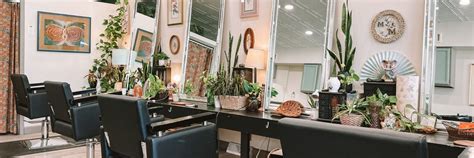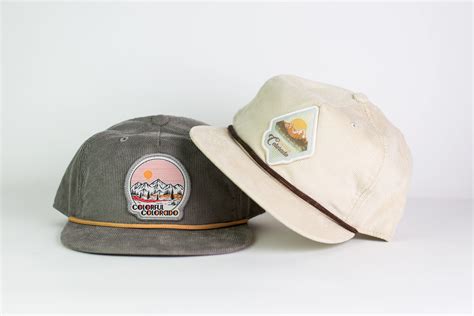Introduction
Flatbrim caps, with their structured silhouette and horizontal brim, have become a mainstay in street fashion. Crafted from various materials, cotton remains an enduring choice due to its versatility and comfort. However, the ability to customize these caps with vibrant dyes opens up a world of possibilities for personal expression.

Benefits of Dyeable Cotton Flatbrim Caps
- Personalization: Dyeing cotton flatbrim caps allows individuals to create unique and personalized headwear that reflects their style and personality.
- Variety: The wide range of dyes available empowers users to achieve an endless spectrum of colors, from subtle hues to bold shades.
- Creativity: Dyeable cotton flatbrim caps offer a blank canvas for artistic exploration, giving users the freedom to create intricate designs or simply experiment with different colors.
- Versatility: The ability to customize these caps makes them suitable for a variety of occasions, from casual outings to special events.
Step-by-Step Guide to Dyeing Cotton Flatbrim Caps
Materials:
- Cotton flatbrim cap
- Fabric dye
- Dyeing equipment (such as a bucket or sink)
- Salt
- Water
- Optional: Gloves, eye protection
Steps:
- Prepare the Cap: Remove any tags or stickers from the cap. Wash the cap thoroughly to remove any dirt or oils that may prevent the dye from adhering properly.
- Prepare the Dye Solution: Follow the instructions on the dye package to prepare the dye solution. Typically, this involves mixing the dye powder with hot water and salt.
- Submerge the Cap: Carefully submerge the cap in the dye solution. Use a spoon or tongs to ensure that the cap is fully covered.
- Stir and Agitate: Continuously stir the cap in the dye solution for the recommended amount of time, as indicated on the dye package. Agitate the cap gently to promote even distribution of the dye.
- Rinse and Wash: Rinse the cap thoroughly with cold water until the water runs clear. Wash the cap in the washing machine with cold water and mild detergent.
- Dry the Cap: Tumble dry the cap on low heat or air dry it. Avoid using high heat, as this can damage the fabric or cause the dye to fade.
Tips for Best Results
- Use high-quality dye specifically formulated for cotton fabrics.
- Follow the dye manufacturer’s instructions precisely.
- Wear gloves and eye protection during the dyeing process.
- Dye the cap in a well-ventilated area.
- Rinse the cap thoroughly to remove all excess dye.
- Dry the cap completely before wearing it.
Pros and Cons of Dyeable Cotton Flatbrim Caps
Pros:
- Customization: Allows for unique and personalized headwear.
- Variety: Offers endless color options for endless creative possibilities.
- Durability: Cotton is a durable fabric that can withstand repeated washing and dyeing.
- Breathability: Cotton is a breathable fabric that promotes comfort and prevents overheating.
- Affordability: Dyeable cotton flatbrim caps are generally affordable, making them accessible to a wide range of consumers.
Cons:
- Color Bleeding: Dyed caps may bleed color onto other fabrics or clothing during the initial washes.
- Fading: Dyeing can fade over time with repeated washing and exposure to sunlight.
- Shrinkage: Cotton caps may shrink slightly after dyeing, so it’s recommended to use a slightly larger cap size.
- Maintenance: Dyeable cotton caps require careful handling and proper washing to maintain their color and shape.
Applications of Dyeable Cotton Flatbrim Caps
The versatility of dyeable cotton flatbrim caps extends beyond the world of fashion. Here are some innovative applications:
- Promotional Headwear: Companies can create custom-dyed flatbrim caps with their logos or branding for promotional purposes.
- Team Uniforms: Sports teams can design unique uniforms using dyed cotton flatbrim caps that match their team colors and branding.
- Special Events: Event planners can create personalized flatbrim caps for attendees, featuring the event logo or theme.
- Artistic Expression: Artists can use dyeable flatbrim caps as canvases for their designs, creating wearable works of art.
Market Outlook
According to a report by Allied Market Research, the global baseball cap market size is projected to reach $38.1 billion by 2027, growing at a CAGR of 4.5% from 2021 to 2027. This growth is attributed to the rising popularity of baseball caps in the fashion industry and the increasing demand for personalized headwear.
Conclusion
Dyeable cotton flatbrim caps offer a unique combination of style, versatility, and customization options. Whether seeking self-expression, team branding, or artistic creation, these caps provide a canvas for limitless creativity. With proper care and attention to detail, dyeable cotton flatbrim caps can become cherished companions for years to come.
Tables
Table 1: Comparison of Dye Types for Cotton
| Dye Type | Advantages | Disadvantages |
|---|---|---|
| Acid Dyes | Bright, vibrant colors; good washfastness | Require special mordants |
| Basic Dyes | Easy to apply; low cost | Poor washfastness; may bleed color |
| Direct Dyes | Easy to apply; no mordants required | Limited color range; moderate washfastness |
| Reactive Dyes | Excellent washfastness; can achieve a wide range of colors | Complex application process; require specific pH levels |
Table 2: Dyeable Cotton Flatbrim Cap Applications
| Application | Description |
|---|---|
| Promotional Headwear | Custom-dyed caps with company logos or branding for promotions |
| Team Uniforms | Unique uniforms with dyed caps matching team colors and branding |
| Special Events | Personalized caps with event logos or themes for attendees |
| Artistic Expression | Caps used as canvases for artistic designs, creating wearable works of art |
Table 3: Key Figures in the Global Baseball Cap Market
| Year | Market Size | CAGR |
|---|---|---|
| 2021 | $28.7 billion | N/A |
| 2027 (Projected) | $38.1 billion | 4.5% (2021-2027) |
Table 4: Tips for Dyeing Cotton Flatbrim Caps
| Tip | Description |
|---|---|
| Use high-quality dye | Ensure vibrant and long-lasting colors |
| Follow manufacturer’s instructions | Avoid mistakes and achieve desired results |
| Wear gloves and eye protection | Prevent skin or eye irritation |
| Dye in a well-ventilated area | Avoid inhaling harmful fumes |
| Rinse thoroughly | Remove excess dye and prevent color bleeding |
| Dry completely | Avoid moisture damage or mold growth |
